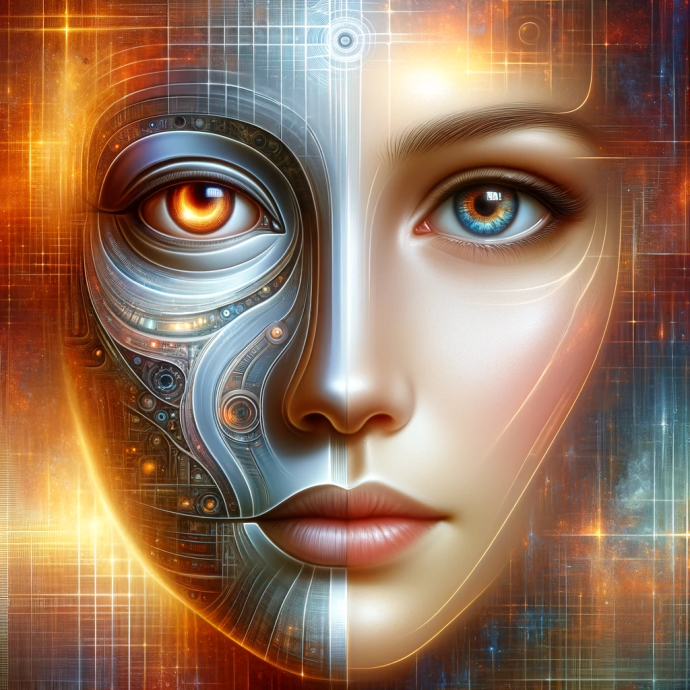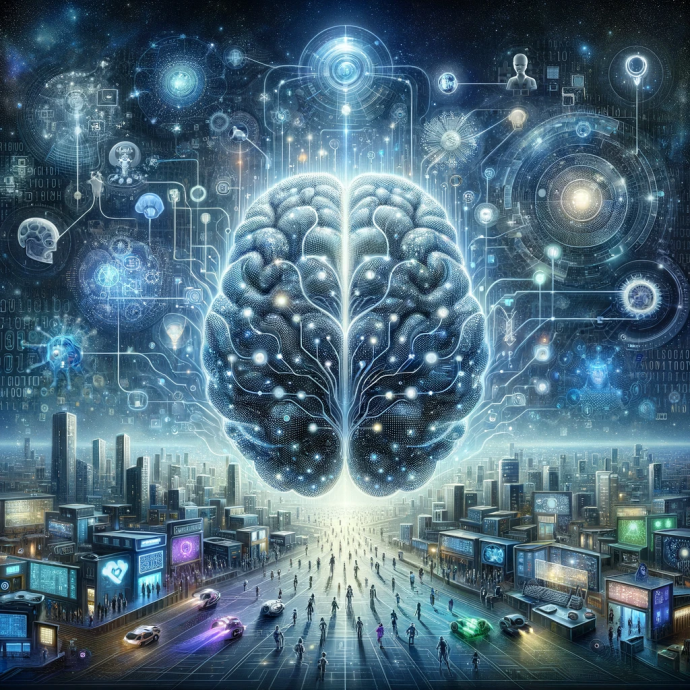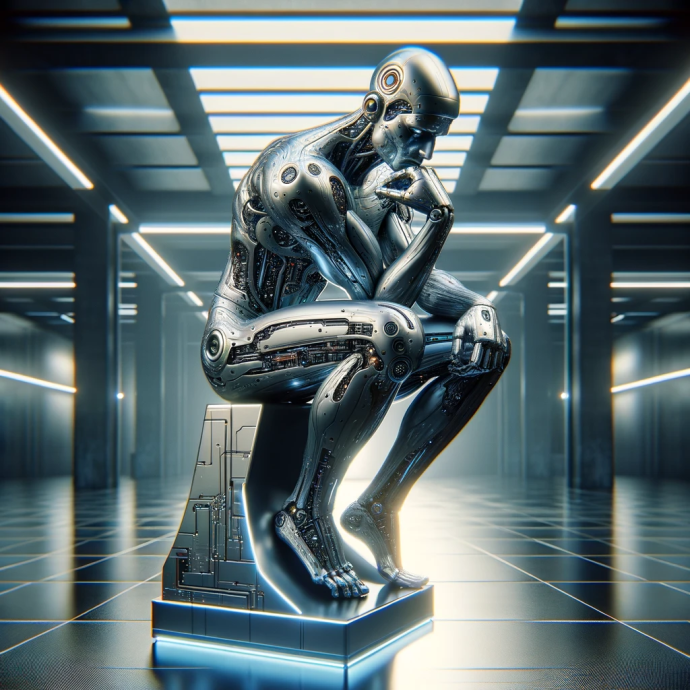A.I. Can Make Art That Feels Human. Whose Fault Is That?

In a generation in which artificial intelligence (AI) has transformed from a futuristic concept to and omnipresent pressure, we stand at the crossroads of a profound cultural shift. This is the instant to ponder: does AI usher in a new sunrise for human creativity, or does it sign a dwindling of our imaginative prowess?
Digital Revolution is Upon Us
AI has seamlessly included into diverse aspects of our lives, from the boardrooms of Wall Street to the creative studios of artists. Its evolution from a fascinating novelty to a tool of ubiquitous have an effect on raises vital questions about its role in shaping our destiny.
Amidst this digital revolution, will we understand AI as a beacon of progress or as a harbinger of cultural stagnation, corresponding to the dwindled attraction of nonfungible tokens?
Undoubted Impact of AI

The inventive realm has not remained untouched by AI's tentacles. Pioneers like Ed Atkins, Martine Syms, Ian Cheng, and Agnieszka Kurant have harnessed AI, using neural networks and advanced language models to push the bounds of artistic expression. Even the orchestral domain has witnessed AI's have an impact on, with AI-generated compositions echoing through live performance halls since the 1990s. These innovations, as soon as groundbreaking, now set off us to reflect on the essence of human creativity inside the age of machines.
AI's foray into textual content-to-picture era, through platforms like Midjourney, Stable Diffusion, and Dall-E, has sparked a debate about the distinctiveness of human creativity. These AI creations, often marked with the aid of symmetrical compositions and surreal aesthetics, mission our belief of art. Yet, additionally they spotlight an important reality: AI, in its contemporary form, lacks the innate capacity to innovate. It can handiest remix and reframe what already exists. It raises the query: are we, as a society, failing to push the boundaries of our creativeness?
The Controversy Round an Ai-Generated Tunes
The controversy round an AI-generated tune mimicking the varieties of Drake and the Weeknd brings this catch 22 situation into sharp attention. It underscores the growing situation that our cultural identity is at stake, threatened by the encroachment of AI into geographical regions once considered solely human. Yet, this incident additionally reveals an extra profound difficulty: the formulaic nature of an awful lot of trendy popular traditions, which appears almost tailor-made for algorithmic replication.
Was It Always So Controversial?
The history of music gives a window into this complicated courting between humans and machines. As far lower back as 1738, Parisians have been captivated by a musical automaton, a testament to the long-status fascination with mechanical artistry. This early robotic, a flutist, posed no risk to human creativity but instead inspired a deeper knowledge of the symbiotic dating between people and machines.
Today, as AI continues to evolve, we have to no longer lose sight of what certainly sets human creativity apart. The danger lies not in machines surpassing human skills however in humans diminishing their capacity, conforming to the restrictions of our virtual creations. Our tradition risks being decreased to mere facts, stripped of its intensity and diversity.
Can AI Mimic Human Creativity?

The actual venture isn't always whether or not AI can mimic human creativity but whether or not we can increase our cultural aspirations. Artists just like the Ukrainian composer Heinali and sculptor Nairy Baghramian display the transformative power of human creativity when harmoniously integrated with technology. Their works, mixing ancient melodies with cutting-edge synthesizers or the use of present day fabrication techniques for delicate sculptures, exemplify the untapped capability of human artistry in the digital age.
As we navigate the virtual panorama, we should confront the developing feel of stylistic exhaustion. The issues surrounding AI nowadays mirror a broader anxiety: are we dropping the essence of our cultural identity amidst the virtual noise? The assignment is to peer AI no longer as a mirror reflecting our dwindled expectancies but as a catalyst for redefining the cost of human creativity.
In this context, AI would possibly ironically emerge as a pressure for precise within the realm of culture. By exposing the clichés and mediocrities of our time, AI demanding situations us to reevaluate the particular competencies of human creativity. We are advised to look past mere imitation and to make investments our private selves – our souls, our precise views – into our creations.
Instead of conclusion
The undertaking before us is apparent: to go beyond the limitations of precedent and to infuse our artwork with the overall spectrum of human revel in. In doing so, we no longer best keep the essence of our cultural heritage however additionally pave the manner for a destiny where technology and humanity coexist in a symphony of limitless possibilities.

Become a part of digital history



Comments about A.I. Can Make Art That Feels Human. Whose Fault Is That?